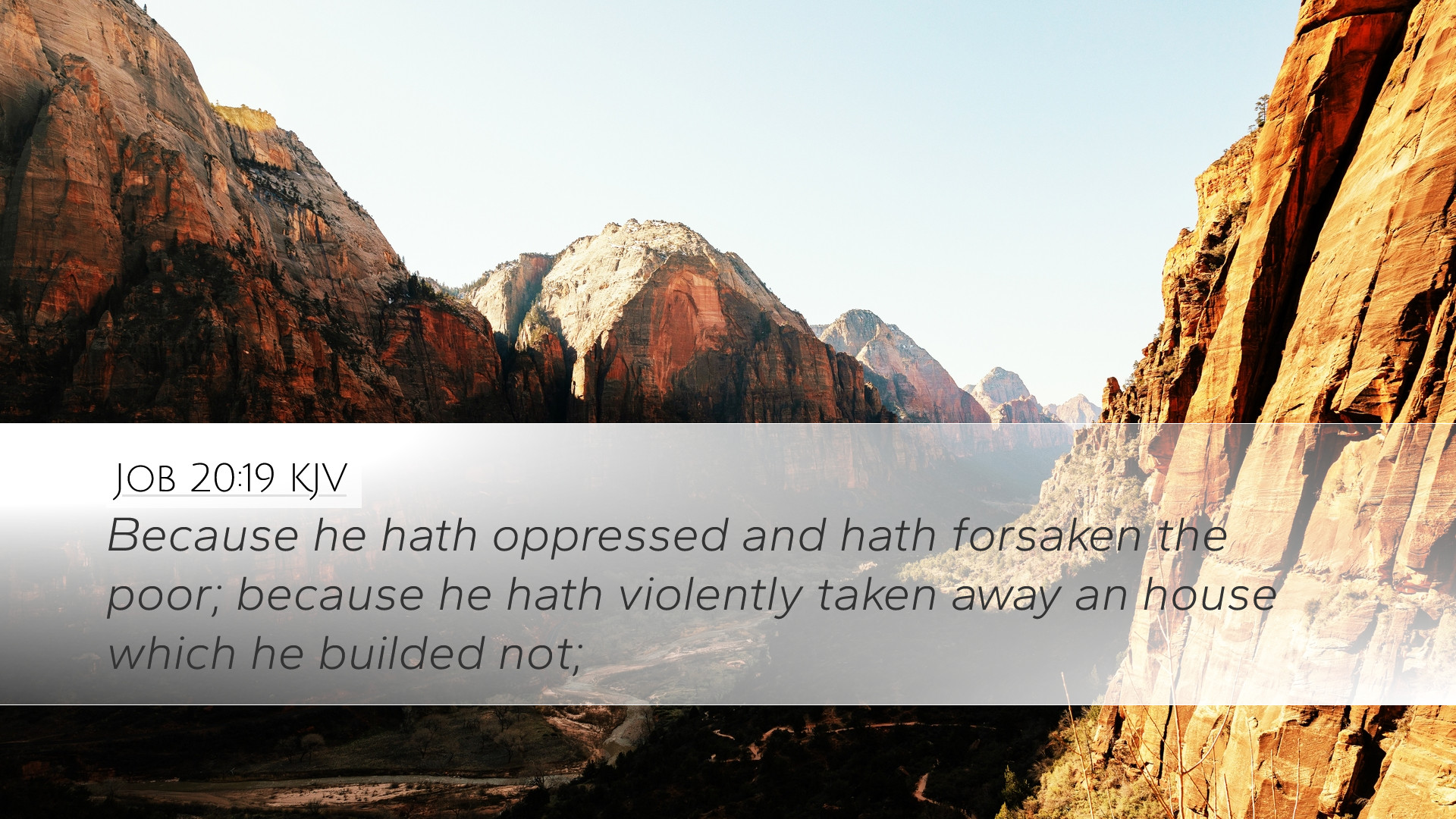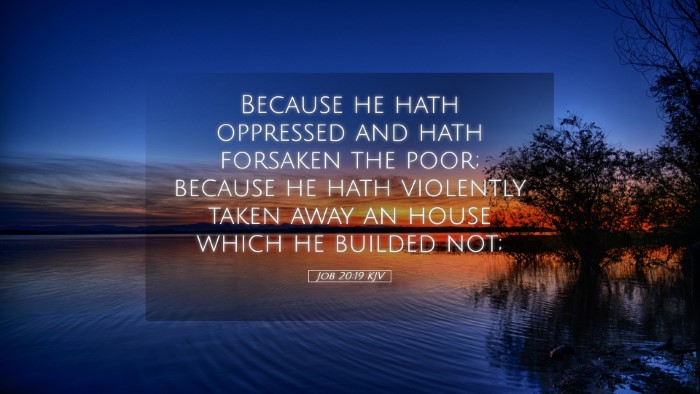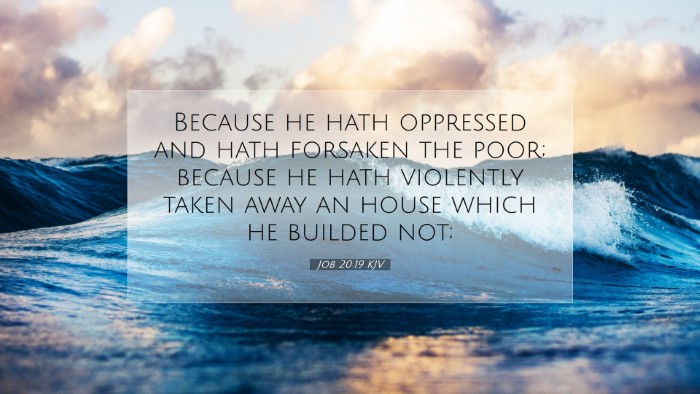Old Testament
Genesis Exodus Leviticus Numbers Deuteronomy Joshua Judges Ruth 1 Samuel 2 Samuel 1 Kings 2 Kings 1 Chronicles 2 Chronicles Ezra Nehemiah Esther Job Psalms Proverbs Ecclesiastes Song of Solomon Isaiah Jeremiah Lamentations Ezekiel Daniel Hosea Joel Amos Obadiah Jonah Micah Nahum Habakkuk Zephaniah Haggai Zechariah MalachiJob 20:19
Job 20:19 KJV
Because he hath oppressed and hath forsaken the poor; because he hath violently taken away an house which he builded not;
Job 20:19 Bible Commentary
Commentary on Job 20:19
Job 20:19 states:
"For he has crushed and forsaken the poor; he has taken away a house which he did not build."
Overview
This verse is part of Zophar the Naamathite's response to Job's lament about his suffering. Zophar presents a rigid interpretation of retribution theology, asserting that the suffering encountered by the wicked serves as a divine consequence of their actions. Here, he points directly at Job, insinuating that Job's misfortunes are a result of his own sins.
Insights from Commentary
Matthew Henry's Commentary
Matthew Henry notes that Zophar's speech is marked by its harshness and uncharitability. He emphasizes that the wicked oppress the poor and act unjustly, leading to their downfall. According to Henry, the term "poor" signifies the vulnerability of the oppressed who suffer under the weight of sin and injustice perpetrated by the rich and powerful. This verse serves as a reminder of social justice, warning against exploiting those who are less fortunate.
Albert Barnes' Notes on the Bible
Barnes elaborates on the meaning of "he has crushed and forsaken the poor," suggesting that it underscores a moral law of retribution in the divine economy. He explains that those who engage in exploitation or injustice toward others, particularly the poor, will ultimately face consequences. Barnes emphasizes that the house which the wicked takes or enjoys is not built on a foundation of righteousness but will soon be torn down as a reflection of their own sinful actions.
Adam Clarke's Commentary
Adam Clarke provides additional depth by exploring the societal implications of such actions. He points out how oppression leads to division within communities, as the wealthy frequently dominate the poor. Clarke remarks that Zophar's assertion acts as a warning to both individuals and society, highlighting the moral decay that occurs when people forsake justice for greed. He notes the biblical principle that God's justice will surely manifest, with the oppressed triumphing over their oppressors in the eventual divine reckoning.
Theological Implications
This verse compels readers to reflect on the nature of divine justice and human morality. It raises questions about suffering, sin, and the socio-economic implications of our actions. The unified voices of the commentators suggest a consistent biblical theme: that there is a divine order where injustice cannot ultimately prevail and that God holds all individuals accountable for their actions toward others, especially the vulnerable.
Lessons for Pastors, Students, and Theologians
- Emphasis on Social Justice: The context of Job 20:19 must be taken seriously in articulating the Christian perspective on social justice. Pastors should address contemporary issues of poverty and oppression in light of this text.
- Understanding Suffering: It offers a theological framework that can help explain suffering not merely as punishment but as a call for reflection on our treatment of others.
- Interpreting Retribution Theology: The discussions surrounding this text provide critical insights into the complexities of divine retribution and human sinfulness, beneficial for students of theology.
- Community and Accountability: This verse prompts serious contemplation regarding how community dynamics play out in the interactions between the powerful and the powerless.
Conclusion
Job 20:19 encapsulates profound themes of divine justice, human morality, and the treatment of society's most vulnerable. By integrating insights from various commentaries, it highlights the imperative for believers to consider their actions and their repercussions on others. Navigating the complexities of this text will ultimately enrich the understanding of God's character and the ethical responsibilities of humanity.


